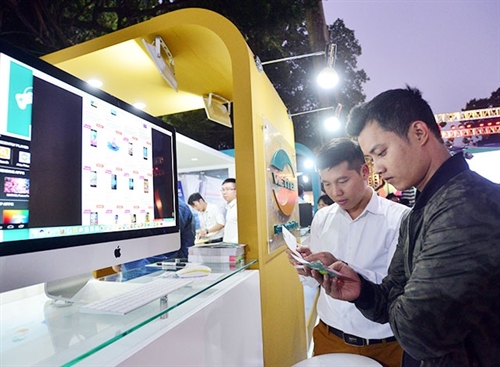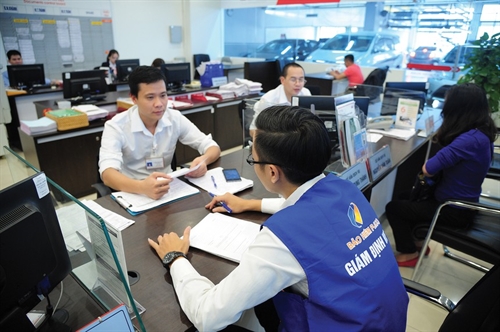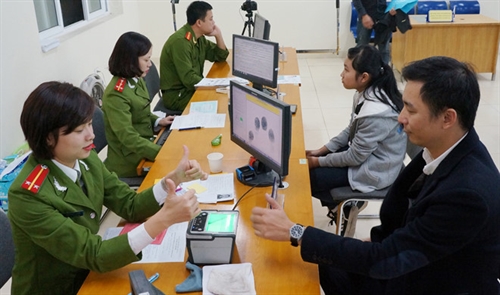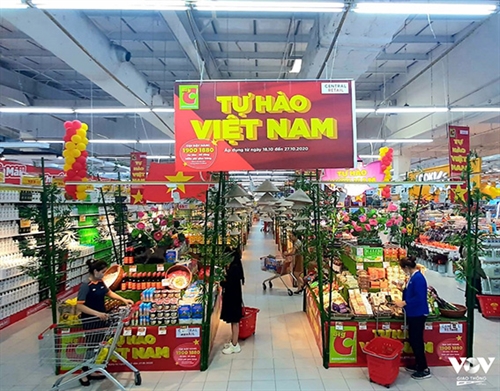Three giant state-owned enterprises (SOEs), MobiFone, Vietnam Electricity (EVN) and Viettel, would be selected to become spearheads in the telecommunications, energy and defense industries, according to a draft scheme on development of large-sized SOEs.
The draft scheme, designed by the Ministry of Planning and Investment (MPI), puts forth criteria for selection of SOEs for development into “crane leaders” as well as special policies for realizing these targets.
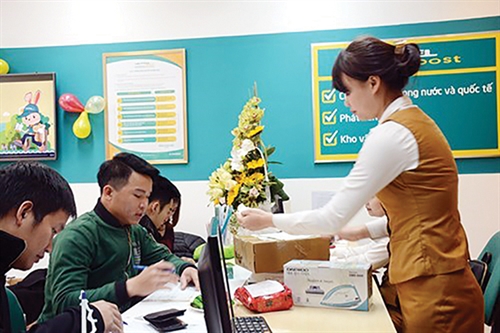 |
| Inside a transaction counter of Viettel Post in Tran Duy Hung street, Hanoi__Photo: Internet |
Under the draft scheme, to be selected, an enterprise must have the charter capital exceeding VND 1.8 trillion (USD 77.9 million), be capable of expanding markets and/or increasing market shares to make up at least 30 percent of the market and a good governance system. In addition, it has to operate in key sectors such as infrastructure, industry, energy, telecommunications, and finance and banking, and be a wholly SOE or an enterprise in which the State holds 50 percent or more of the charter capital or total voting shares.
Explaining the reason why telecommunications, energy and defense industries are selected, the ministry says they are important sectors for the development and security of any country that supply indispensable inputs for production and business activities, provide infrastructure facilities in the period of digital transformation and Industry 4.0 and ensure national defense.
MobiFone is proposed thanks to its good financial situation and business results compared with the other telecommunications enterprises. It also possesses a corporate governance system and advanced technologies. Especially, the corporation is focusing its resources on digital transformation and development of an ecosystem of digital transformation products serving small- and medium-sized enterprises.
In order to promote the spearhead role of MobiFone in the telecommunications sector, the MPI proposes speeding up the equitization of the enterprise. Under the scheme, the equitization would be conducted without selection of foreign strategic investors. Instead, the State would hold 51 percent of the charter capital of the enterprise while the remaining 49 percent would be put up for auction.
EVN is selected to represent the energy sector because it accounts for almost 50 percent of the country’s total electricity output and has plenty of investment experiences in the power sector, especially clean energy.
The ministry proposes the State Capital Investment Corporation would coordinate with EVN in investing in renewable energy projects and attracting private enterprises’ participation in the field. It suggests the transfer of the EVN National Load Dispatch Center to the Ministry of Industry and Trade for management while EVN would be soon equitized so as to ensure mobilization of financial resources and renewal of corporate governance. It also proposes hiring managers to operate EVN’s power plant clusters.
In the defense sector, Viettel takes the lead in research and development activities, technology transfer, and manufacture, import and export of military technical equipment and dual-use items. With its focus on hi-tech defense, electronics and telecommunications and network securities, Viettel strives to rank among top 80 businesses with the highest turnover in the world by 2025.
For Viettel, a defense industry development fund would be founded from after-tax profits, providing the corporation with funds for defense industry development activities. Meanwhile, a venture investment fund might also be formed serving the commercialization of research outcomes. Viettel would also concentrate on development of highly qualified human resources, especially leading experts in the fields of information technology, hi-tech industry, and Industry 4.0 technologies such as artificial intelligence (AI) and big data.
Selected SOEs are expected to pave the way for and lead other enterprises in the formation and expansion of regional and global supply and value chains, says the ministry.- (VLLF)




